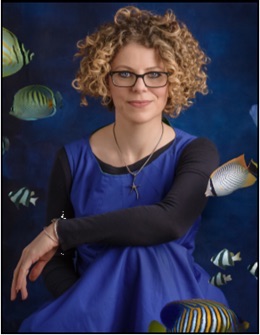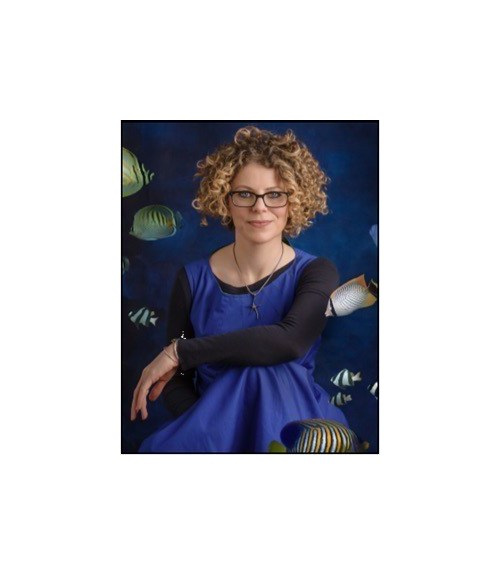
Courtesy of USF St. Petersburg
By Dylan Hart
USF St. Petersburg overlooks the harbor. But in our day-to-day existence on the ground, do we really consider the life below the surface of the water?
Helen Scales, who spoke in the University Student Center ballroom Feb. 6, thinks that many people can’t answer the question of why oceans matter.
“We’ve reached this point now where it’s important for as many people as possible to know — and I mean really know — why the oceans matter,” she said. “The oceans face greater threats than they ever have before.”
Scales is a marine biologist, author and broadcaster from the U.K. She grew up in a southwest London suburb, a place she describes as “a long way from the sea,” but spent family holidays in the rocky coastal region of Cornwall, England.
“As a kid, I was very used to spending time on beaches, rock pooling, hunting for seashells and generally just being by the sea,” Scales said. “Over those holidays, the ocean really flooded into my mind and it stayed there.”
Her connection to the ocean led her to seek a degree in natural sciences from the University of Cambridge. She followed it with a master’s degree in tropical coastal management from Newcastle University, and then a doctoral degree at Cambridge, where she now teaches marine biology and science writing.
And for Scales, writing is an incredibly important part of her work, not only as an author, but also as a scientist and conservationist.
“There are lots of facts that I can give you about what the oceans give us,” she said. “The oceans produce half of the oxygen we breathe. But I think that those sorts of facts can only take us so far. Until our oxygen runs out, we don’t really think about it.”
Instead of providing facts and figures, Scales thinks that the right way to draw attention to the threatened oceans is to share stories that will “give people a new view of what’s going on down there.”
For one, Scales wants to show people that fish are often more complex creatures than they seem.
“Fish have a reputation as animals that have no feelings — that can’t remember things for more than a few seconds,” she said. “This assumption really does affect the way we view fish, and it affects the way we treat them. But now, science is starting to chip away at this assumption.”
The cleaner wrasse is a small fish that plays the role of the “chief cleaner” in a reef. It feeds on parasites that attach themselves to bigger fish.
She explained the story of the cleaner wrasse from an excerpt of her new book, “Eye of the Shoal.”
Their behavior around fish that could easily eat them is complex. It involves the right amount of bargaining and trickery to get what they want. Fish queue for cleanings, and wrasses select their clients carefully, seeking mucus and maybe even bits of flesh from the right targets.
Scales says that studies have shown wrasses to be self-aware. They remember every fish they encounter and tailor their services accordingly. They even recognize themselves in mirrors.
“Smart creatures like the cleaner wrasse living complex, evolved lives give proof that the oceans really do matter,” she said.
She also discussed the complexity of mollusks, which are capable of organically creating three-dimensional spiral shells, and the mysterious lives of argonauts.
Scales thinks that, while people can enact individual solutions, pushing for large-scale change is what we need to prevent overfishing, carbon dioxide buildup and ocean acidification from destroying marine ecosystems.
“There’s lots of things we can do in our daily lives — recycling, cycling, walking, eating sustainable fish,” she said. “But we also need bigger change. Use your votes and support the people who also believe that we need radical change to protect the oceans. It’s not about carrying on as we are — that’s like shuffling the deck chairs on the Titanic.”
Her second request, however, links back to her roots as an author.
“Pass on your stories of the sea,” she said. “Go and tell your friends about the wrasse that remembered every fish it met, or whatever story it is that convinces you that the oceans matter so that other people can really understand that the oceans do, indeed, matter.”



